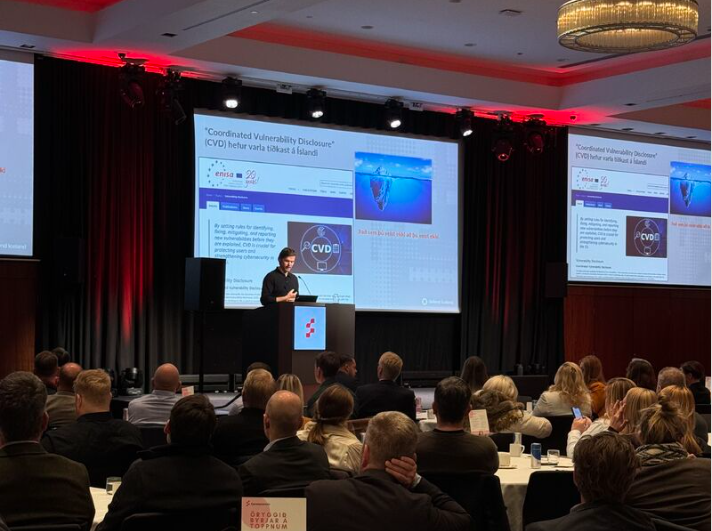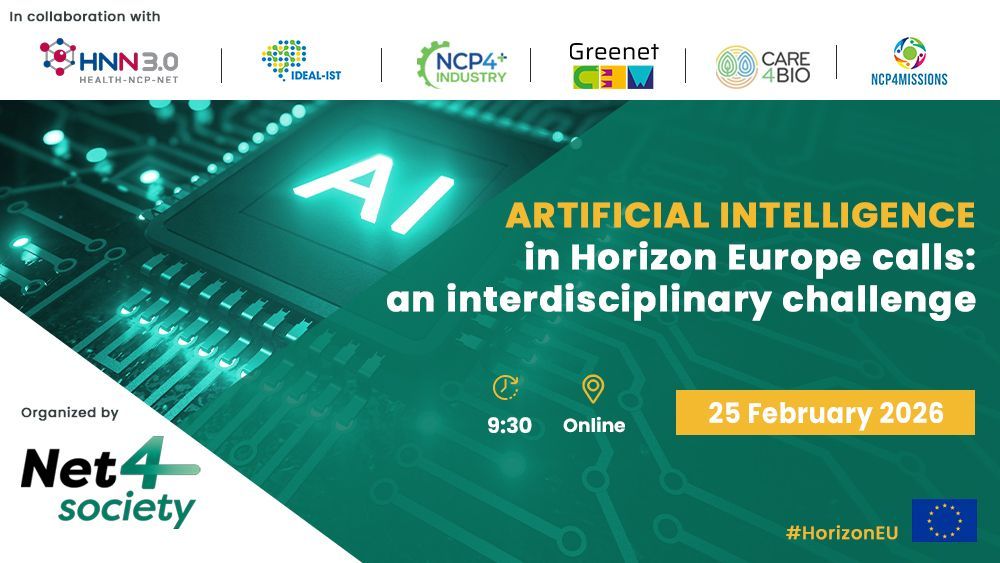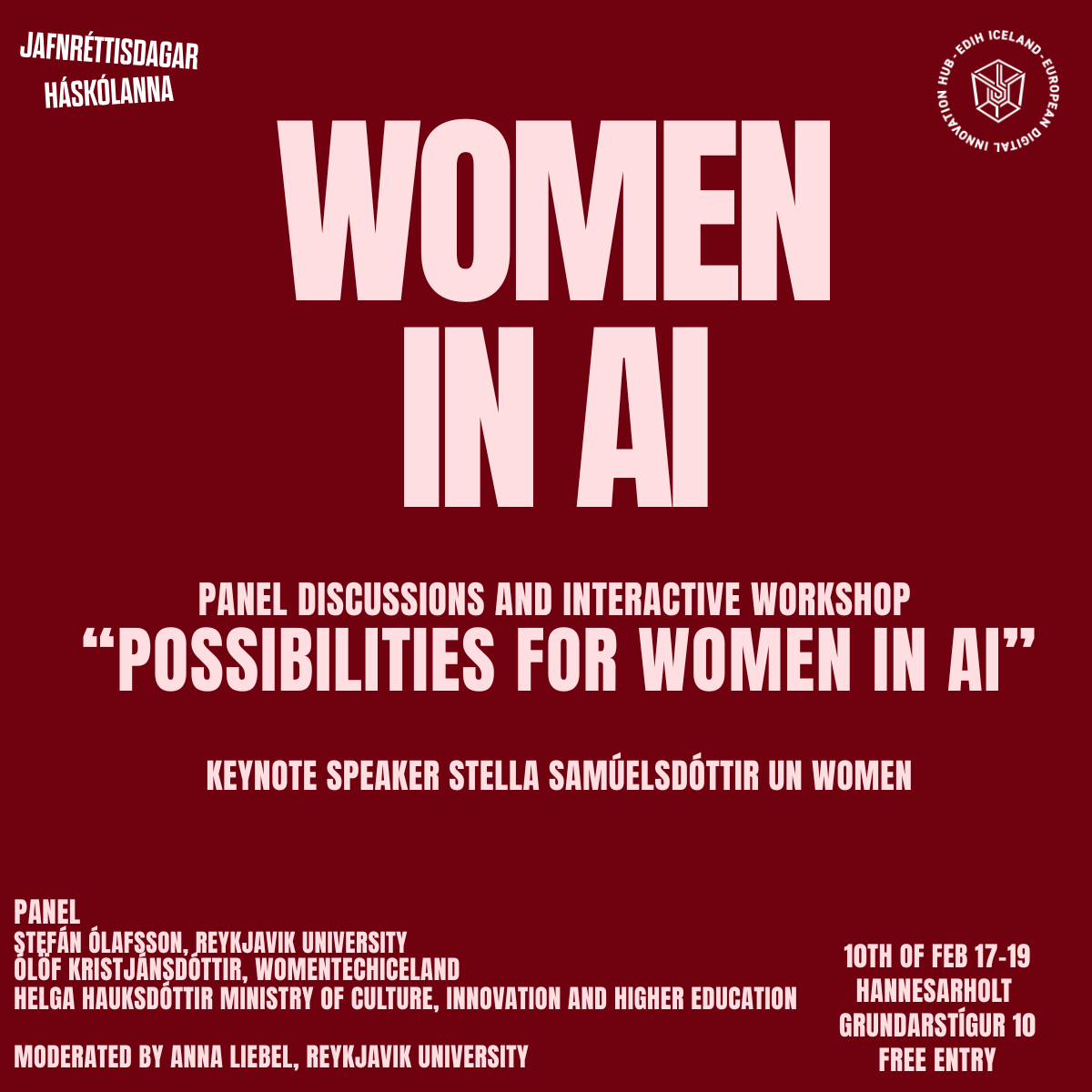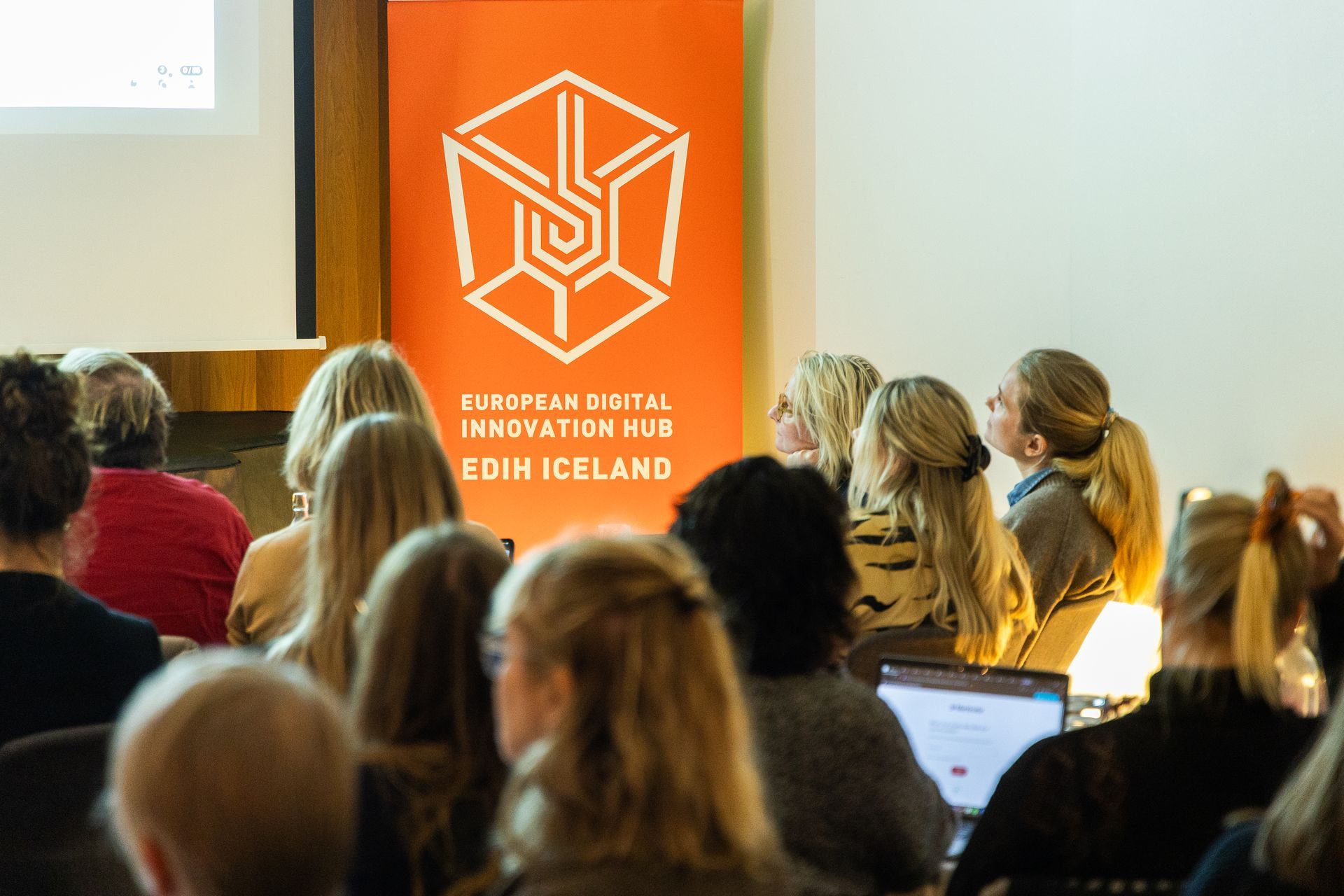Cyber Security Conference
/
To disclose a security weakness is Nothing but a sign of strength

Fjarskiptastofa /ECOI's conference on cyber security was held at the Hilton Reykjavík Nordica on October 8th. Theódór Gíslason, technical director at Syndis and founder of Defend Iceland was one of the speakers at the conference. His speech is called "One weakness from Game over". There he argues that security vulnerabilities are in a way positive if they are handled correctly.
"A security vulnerability that is exploited is naturally very serious and can have extremely serious consequences just as many have seen. The idea, as it were, is that if security vulnerabilities are found responsibly and reported responsibly and handled responsibly and disclosed responsibly, then we are all more responsible as a society. Just like we want to know what the weather is like, if there are cracks in the earth's crust under us and all that."
Teódór says organizations need to assess what vulnerabilities to security vulnerabilities could cause a "Game Over" scenario, not just within their own systems, but also in their supply chains, with an emphasis on the societal impact of such vulnerabilities. Cyber security threats can be likened to natural disasters, so we need to have an open conversation about vulnerabilities before they cause harm. By doing so, companies can prevent major damage rather than reacting after an incident. In addition, he discussed the importance of promoting an information culture and that weaknesses should be seen as opportunities for improvement. Encouraging responsible vulnerability disclosure helps create a positive cybersecurity culture and makes organizations and society more resilient.





